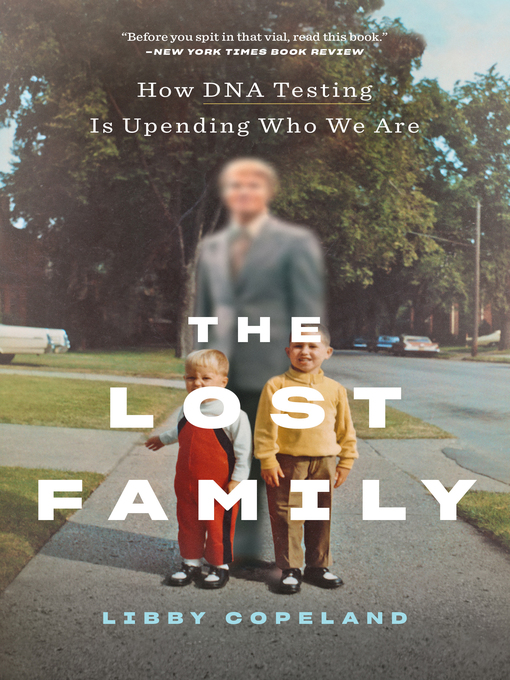
The Lost Family
How DNA Testing Is Upending Who We Are
چگونه تست DNA برای کسی که هستیم مفید است
کتاب های مرتبط
- اطلاعات
- نقد و بررسی
- دیدگاه کاربران
نقد و بررسی

March 1, 2020
Journalist Copeland explores the rapid advances in home genetic testing kits in the last decade. The kits have become popular gifts, but Copeland shares numerous cautionary tales of "seekers" who found more than they bargained for. The heart of the book is the story of Alice Collins Plebuch, who tested in the early days of commercial kits and discovered that her genetic heritage was not solidly Irish, as she had supposed, but was Ashkenazi Jewish on her father's side. This led to a years-long quest to unravel the mystery of her heritage, resulting in the discovery that her father was switched at birth with another baby in a (no longer existing) hospital in New York in 1913. Copeland uses fascinating stories of family discoveries to illustrate the science behind genetic connections and to discuss the ways bioethical considerations have not kept pace with the improvement of the kits, including privacy concerns with how genetic databases are used by law enforcement. She emphasizes that if you choose to send in your saliva sample, the results can reverberate through the whole family tree. VERDICT Highly recommended for popular science and memoir fans, as well as readers with an interest in genealogy.--Caren Nichter, Univ. of Tennessee at Martin
Copyright 2020 Library Journal, LLC Used with permission.

Starred review from January 15, 2020
A fascinating account of consumer genetic testing's "fundamental reshaping of the American family" over the past two decades. Swabbing your cheek and sending off for personal DNA results is increasingly common, for the curious as well as for family historians and those in the dark about their parentage. In her impeccably researched debut, journalist Copeland traces the development of "genetic genealogy," a field created by citizen scientists. Whereas 1970s genealogists relied on microfilm archives and in-person interviews with relatives, their yearslong searches only shortened by lucky discoveries, today's genetic "seekers" can get answers within days. In 2000, FamilyTreeDNA became the first company to offer at-home DNA testing, followed by Ancestry.com and 23andMe. The author chronicles her meeting with the founder of FamilyTreeDNA, her visit to the Family History Library in Salt Lake City, and her correspondence with 400 DNA testers. Many received shocking results but agree it's better to know the truth, even about abandonment, rape, or incest. Copeland highlights a few representative cases--e.g., a father who had a second family and a woman who didn't learn she was adopted until age 51. Foundlings and children of sperm donors often meet (half-)siblings they never knew existed. But the anchoring storyline is that of Alice Collins Plebuch, who was surprised when her saliva sample indicated that she was half Eastern European Jewish instead of 100% British/Irish. Copeland presents her quest for her late father's true heritage as a riveting mystery with as many false leads as any crime novel. Along the way, the author thoughtfully probes the ethical dangers of genetic testing, including conflicting privacy rights, an essentialist view of race, unexpected medical results, and DNA databases being used in crime-solving. As she notes, it's a fast-moving field in need of regulation, and she engrossingly examines the many questions that arise, both practical and rhetorical: "What makes us who we are? Blood? Family? Culture?" Up-to-the-minute science meets the philosophy of identity in a poignant, engaging debut book.
COPYRIGHT(2020) Kirkus Reviews, ALL RIGHTS RESERVED.

























دیدگاه کاربران